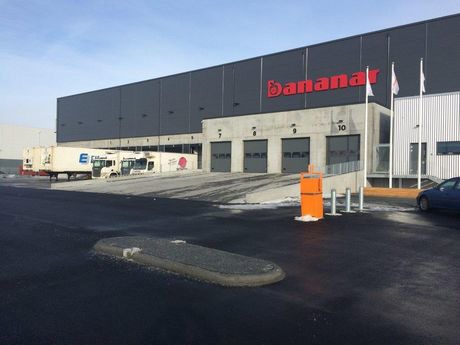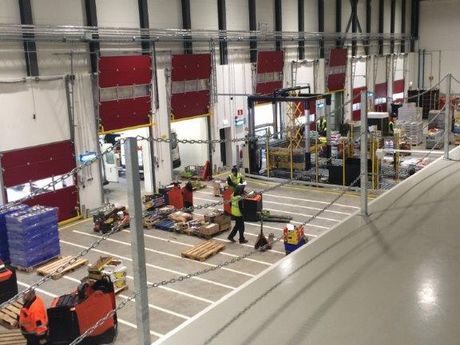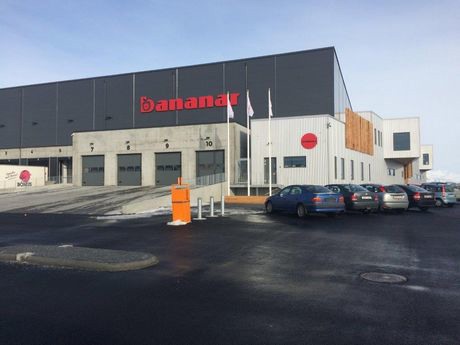The Icelandic import business was founded in 1955. Back then, as the name suggests, the company was specialized in importing bananas. Over the course of the year the assortment has extended greatly to a total package of fruit and vegetables. The Icelanders have relationships all over the world for the import of the products. Companies from China, the Netherlands, Spain, France, the United States, South America, Brazil and South Africa are all on the list of suppliers.

Demanding Icelanders
“Icelanders are demanding consumers,” says Bardur. “Icelanders are very health conscious and want to know where products are from. The demand has almost no change in season. Asparagus from Peru is popular all year round. Only the demand for clementines stops after Christmas.” The northern island has had a few difficult years, which started with the Icesave debacle in 2008. Iceland has left these difficult years behind it. The currency is climbing in value, the economy is growing and the unemployment is exceptionally low at 2 percent. Tourism is also growing around 25 percent per year.
Restaurants, hotels and the retails are Bananar’s main customers. “It is going well due to a focus on healthy food and the growing tourism,” says Kjartan. “We are raising our volume by ten percent each year. The currency is strong, the prices are good and the salaries are on the rise.”

Domestic cultivation
Bananar recently moved to a new location in the capital Reykjavik. After almost forty years on the same location it was time for a new building. “We now have seven ripening chambers and cooling spaces in Reykjavik,” explains Kjartan. Besides bananas, there is a large market for tomatoes, cucumber, peppers, broccoli, cauliflower, white cabbage, carrot, potato, parsnip and mushrooms.
And although the island is very northern, with dark and cold winters, not all products are imported. “We prefer Icelandic products because the taste and quality are better,” says Bardur. “For instance, we haven’t imported cucumbers for years.” At around 100 kilometres east of Reykjavik, close to the touristic hotspot Geysir there are various greenhouses where the Icelanders can grow vegetables all year round using geothermal heat. Tomatoes and cucumbers are among the products grown in the greenhouses. The island also has potato cultivation.

Transport times
As the island is far to the north, the transport times are long. Logistics is therefore a top priority for the importer. A number of products, such as berries, are flown in, but most arrives by ship. “Transport to Iceland from Europe by ship takes a week, then the product has to be stored with us and still be in the supermarkets fresh.”
Garlic and ginger are imported from China. The products travel for eight weeks, but are still cheaper than the European products. “The Northern Sea route isn’t open yet. Tests are being done, but no commercial sailing. It would be an advantage for us if this sea route opens,” Kjartan concludes.
More information:
Bananar
Bardur Nielsson and Kjartan Már Fridsteinsson
+354 525 0100
[email protected]
[email protected]










